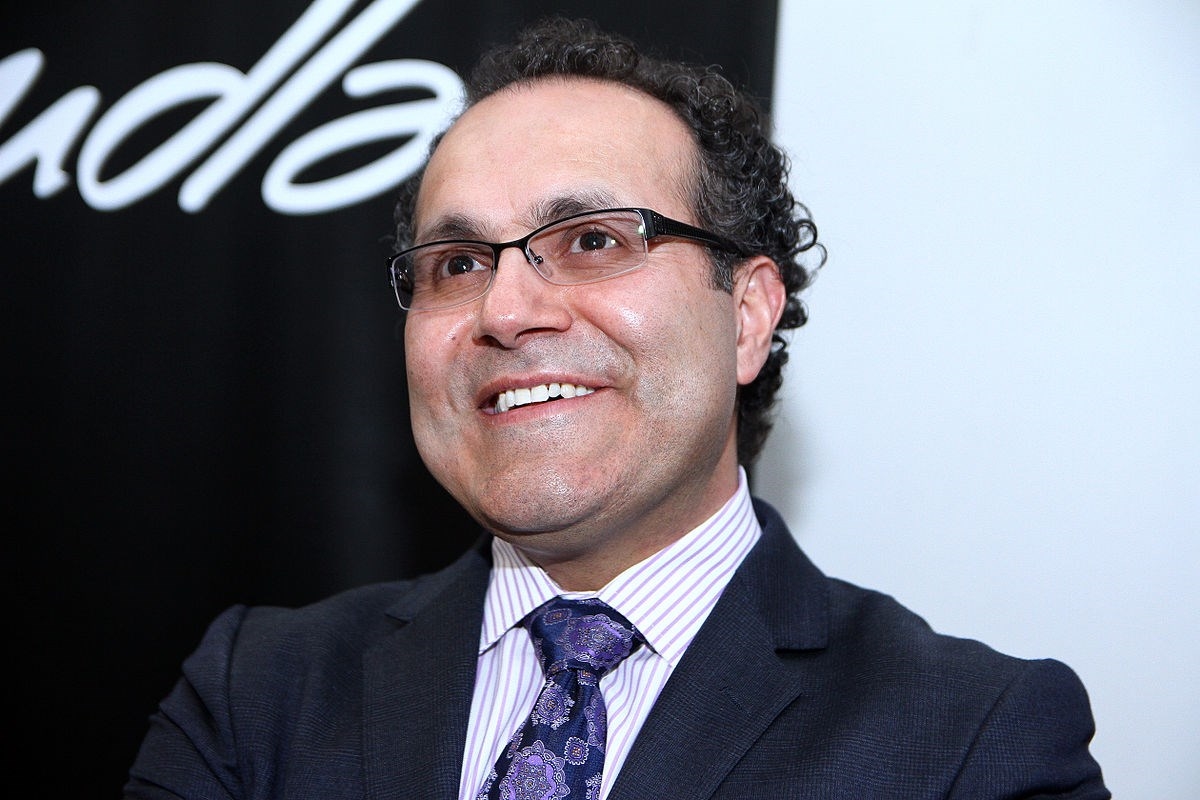Born in 1968 in the small town of Palaco, near Mexicali, Mexico, Alfredo Quiñones-Hinojosa grew up in a poor but close-knit family. His early years were marked by financial hardship. From a young age, Alfredo worked to support his family, and by the time he was a teenager, he had already decided to cross the U.S.-Mexico border in search of a better life. In 1987, at the age of 19, he climbed over the fence separating Mexico from the United States and settled in California, where he hoped to find work and carve out a new future for himself.
Quiñones-Hinojosa took on the only job available to him at the time—working as a migrant farm laborer in the Central Valley of California. He spent long days picking tomatoes, cotton, and other crops in the fields under the harsh sun. Despite the grueling conditions, he remained optimistic and motivated. His time in the fields he has reinforced his desire to pursue education, a path that he saw as his way out of poverty.
While working as a farm laborer, Quiñones-Hinojosa attended evening English classes at a community college. His determination to improve his language skills and his passion for learning quickly caught the attention of his teachers. With their encouragement, he applied to and was accepted by San Joaquin Delta College. This marked the beginning of his journey into higher education.
Quiñones-Hinojosa excelled academically. After two years at community college, he transferred to the University of California, Berkeley, where he earned a degree in psychology with honors. His time at Berkeley opened doors that would have seemed impossible just a few years earlier. Encouraged by his professors, he applied to medical school and was accepted into the prestigious Harvard Medical School.
At Harvard, Quiñones-Hinojosa quickly distinguished himself as a talented and dedicated student. He had initially considered pursuing psychiatry, but after shadowing neurosurgeons, he found the ability to save lives and improve the quality of life for patients facing devastating neurological conditions motivated him to specialize in neurosurgery.
His journey through medical school was not without challenges. As an undocumented immigrant, Quiñones-Hinojosa faced numerous obstacles, including financial hardship and concerns about his legal status in the United States. However, his relentless work ethic and passion for medicine helped him overcome these barriers. He graduated with honors from Harvard in 1999 and went on to complete his residency in neurosurgery at the University of California, San Francisco (UCSF).
 Alfredo Quiñones-HinojosaWiki
Alfredo Quiñones-HinojosaWiki
Today, Dr. Alfredo Quiñones-Hinojosa is widely regarded as one of the world’s foremost neurosurgeons. He specializes in the treatment of brain tumors and complex spinal disorders, and his research focuses on finding new and innovative treatments for malignant brain tumors, particularly glioblastoma, one of the most aggressive forms of cancer.
After his residency, Dr. Quiñones-Hinojosa spent several years at Johns Hopkins University, where he became a professor of neurosurgery, oncology, and cellular and molecular medicine. He also served as the director of the Brain Tumor Surgery Program at Johns Hopkins Bayview Medical Center. During his time there, he made groundbreaking advancements in the field of neurosurgery and contributed significantly to the understanding of brain tumor biology.
In 2016, Dr. Quiñones-Hinojosa was appointed chair of the Department of Neurologic Surgery at the Mayo Clinic in Florida, one of the top medical institutions in the world. Under his leadership, the department has expanded its research efforts, particularly in the area of regenerative medicine, which seeks to harness the body’s ability to repair itself after traumatic brain injuries or diseases.
In addition to his clinical work, Dr. Quiñones-Hinojosa leads a research laboratory focused on stem cells and their role in brain tumor development. His team is investigating ways to manipulate stem cells to repair damaged brain tissue and improve outcomes for patients with brain cancer. His research has the potential to revolutionize the treatment of neurological disorders and offers hope to patients facing life-threatening conditions.
Dr. Quiñones-Hinojosa’s is passionate about mentorship and frequently shares his story with students, especially those from disadvantaged backgrounds, encouraging them to pursue their dreams no matter the obstacles they may face.
He is also an editorial board member and reviewer for several publications. Most notably, he is the editor-in-chief for Schmidek and Sweet Operative Neurosurgical Techniques (6th edition). He is also one of the editors for Controversies in Neuro-Oncology: Best Evidence Medicine for Brain Tumor Surgery, which was awarded first prize by the British Medical Association. He is co-founder and serves as president of Mission: BRAIN, Bridging Resources and Advancing International Neurosurgery, a 501(c)(3) nonprofit foundation. Dr. Q has also authored several books and scientific papers, including his inspiring memoir, Becoming Dr. Q: My Journey from Migrant Farm Worker to Brain Surgeon, which chronicles his remarkable life story. In the book, he reflects on the challenges he faced, the lessons he learned, and his dedication to serving others through medicine. We discover he was once known as Freddy, a nineteen-year-old undocumented migrant worker toiling in the tomato fields of central California after a harrowing border crossing to escape his impoverished childhood in the tiny village of Palaco, Mexico. Recently Disney with Plan B Entertainment productions announced that his life story is going to be featured in a movie.
Dr. Quiñones-Hinojosa is also involved in global health initiatives, particularly in Latin America, where he works to improve access to healthcare for underserved populations. He frequently travels to Mexico and other countries to perform surgeries and train local doctors, helping to bridge the gap in healthcare access for the poor and marginalized.
Find out more HERE.
Page created on 10/21/2024 9:33:59 AM
Last edited 10/21/2024 4:32:48 PM
